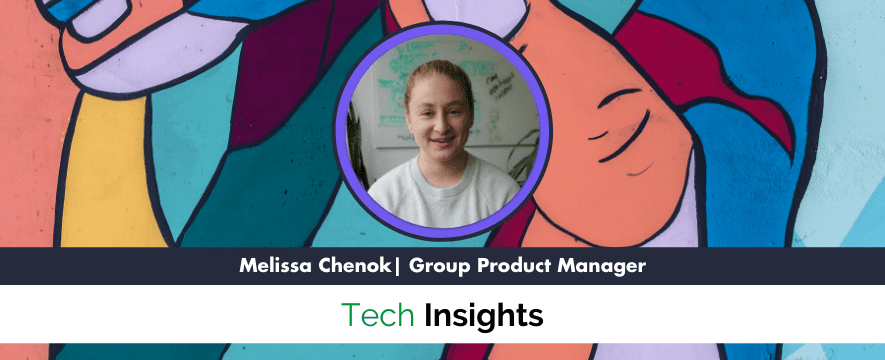You became a developer because you love building things.
When left alone, you can crank out a masterpiee.
But you’re rarely left alone.
Recently you’ve been given more responsibility. You’re often pulled into meetings – with your team, product and sales, and even the client. Plus, you now have to manage a younger engineer.
The technical part of the job comes naturally to you.
But these other responsibilities? Not so much. To succeed, you’ll need to grow the necessary skills.
We’ve compiled a list of 7 soft skills that every developer needs in order to progress in their career (plus tips on how to cultivate each trait).
#1: Effective Communication
This one is obvious, but it’s worth mentioning since it’s the building block for your success.
Early on in your career, you’ll primarily interact with your team. That communication typically revolves around the projects you’re working on and the roadblocks you face. But as you progress, your circle will expand to other teams – and even clients.
So what skills do you need to communicate well?
Avinash Aluvala, VP of Engineering at Socially Determined, suggests that developers should learn to communicate in non-technical jargon. He explains, “When working with clients and business users, developers need the ability to concisely and effectively explain issues and solutions.”
Alex Price, Engineering Leader previously at Google, explains that the more senior an engineer becomes, the more important it is for them to create and evangelize new ideas throughout their organization. He cautions that “engineers who are overly dogmatic are often met with a lot of friction. Engineers who want to see their ideas adopted should learn the needs of their organization and propose ideas that resonate with other senior engineers and management.”
Pro Tip: Part of effective communication is listening. By listening well, you’ll pick up on a customer’s pain points or a co-worker’s frustrations; allowing you to build a better product and be a better teammate.
How to Grow the Skill:
A great place to start is reading Carmine Gallo’s Five Stars: The Communication Secrets to Get from Good to Great. If you need more inspiration, here are 9 books that will help you improve your communication skills.
#2: Relationship Building
Building relationships is all about truly understanding others.
Zach Shuster, Director of Product at Loop & Tie, affirms that “familiarity builds trust, which makes it easier to push through when stress is high around deadlines or there’s a difference in opinions.”
Ultimately, this skill will allow you to build valuable products for your end users and enable you to work well with coworkers.
How to Grow the Skill:
When it comes to better understanding customers, start by spending more time with the sales and product teams. After all, it’s their job to know the user, including their pain points, desires, and goals.
To connect with coworkers, you could schedule a 1:1, coffee, or lunch with someone on your team. This is especially effective if there’s someone you have difficulty communicating with. Once you get to know them, you’ll likely find that it’s much easier to work together.
Bonus: Don’t overlook Dale Carnegie’s How to Win Friends and Influence People. It’s a best seller for a reason!
#3: Problem Solving (With a Dash of Creativity)
Let’s be real. You’re always going to face challenges in your workday.
As a developer, problem-solving is at the core of your work. And finding the solution requires creativity.
After all, your company doesn’t pay you to follow a predefined course. They want you to create new ideas, adapt to change, and solve whatever problems come your way.
Alex Price shares that “it’s almost impossible to avoid change in the current work environment. Great engineers will be able to adapt to change and see opportunities within it.”
How to Grow the Skill:
When a problem pops up, take 15 minutes to step back and create a game plan of how you can solve the issue. Ask yourself these questions:
- What are the different ways I can solve this problem?
- What will be the impact of each solution?
After brainstorming solutions, share your ideas with your manager. They’ll be pleased that you present ideas, rather than saying, “Hey, I came across this issue. What should I do?”
#4: Teachability
As a developer, having a teachable mindset is crucial in order to advance.
If you’re not willing to hear the perspectives of those you work with – whether peers or your boss – then you will seriously stunt your growth.
An open and humble mindset will enable you to build the best possible product.
How to Grow the Skill:
Be intentional about seeking feedback. Don’t wait for it to come to you.
This is especially important in a remote work environment where you’re less likely to casually chat with a coworker.
As an example, you could reach out to a team member every time you’re about to dive into a new project. Simply chat with them for 10 minutes to confirm you’re heading in the right direction and ensure you’re not wasting hours working on the wrong thing.
#5: Time Management
Ever felt swamped at work?
As a product developer, a busy schedule comes with the territory. That means you need to develop the skills to manage your time well.
For example, when you’re given a new project, you’ll need to break it down into smaller tasks and figure out a feasible timeline.
Avinash Aluvala explains, “Managing one’s time effectively involves figuring out how long to spend your time on something and estimating when you’ll be able to complete a project.”
How to Grow the Skill:
To start fostering this skill set, here are 10 time management tips for developers to incorporate into their day.
#6: Collaboration
“Developers can be more effective if they lean on each other and learn to tap into each other’s skills to get things done… it’s similar to how a ball moves faster down the field in a football game if you pass to the player in front of you, rather than trying to run with it.” – Avinash Aluvala
Being able to work well in a team setting is a huge determinant when it comes to success in your work.
At the end of the day, your end product is the outcome of an entire team working together.
When it comes to progressing in your career, Alex Price shares, “Whether an engineer wants to become a tech lead or grow deeper technically, they won’t be able to expand their influence beyond themselves unless they can collaborate with other engineers and cross-functional partners.”
You’ll also likely need to work with people beyond your immediate team. For example, Zach Shuster explains the importance of collaboration between product and engineering:
“I’m a product person who’s never been a developer, and I still sometimes ask questions that must seem very basic to developers with domain expertise. Getting comfortable with that fact has been a big part of my personal product journey. I wouldn’t have gotten there without the support of numerous developers who answered my questions with openness and generosity.”
How to Grow the Skill:
Growing your ability to collaborate requires intentionality. Start by scheduling meetings with people from other departments such as product, data science, and design. As you spend time with these teams, you’ll start to learn about all aspects of building a product. Through this collaboration, you’ll be able to build an even stronger product.
#7: Curiosity
Working in tech involves constant change. There are always advances in the field as well as new technologies and programming languages to explore.
In order to succeed in this ever-changing industry, you need to possess an insatiable curiosity.
You also need to be skilled at researching things and getting answers to your questions.
How to Grow the Skill:
Start by setting a learning goal. Whatever you choose, make sure it’s something you can actually achieve.
Pro Tip: Don’t try to cultivate this skill alone. Instead, get intentional about learning alongside others. For example, you can complete a certification with a co-worker or attend a conference with a friend. You’ll end up being more motivated and you’ll benefit from discussing what you learned and how to implement it into your work.
Get Ready to Skyrocket Your Career
You’re ready to take your career to the next level. And now you know which soft skills will get you there.
Take a moment, look through the 7 skills again, and pick one to start with.
Now jot down some ideas to start growing that skill this week.
By starting with one, you’ll see how easy it is to start growing the rest!





